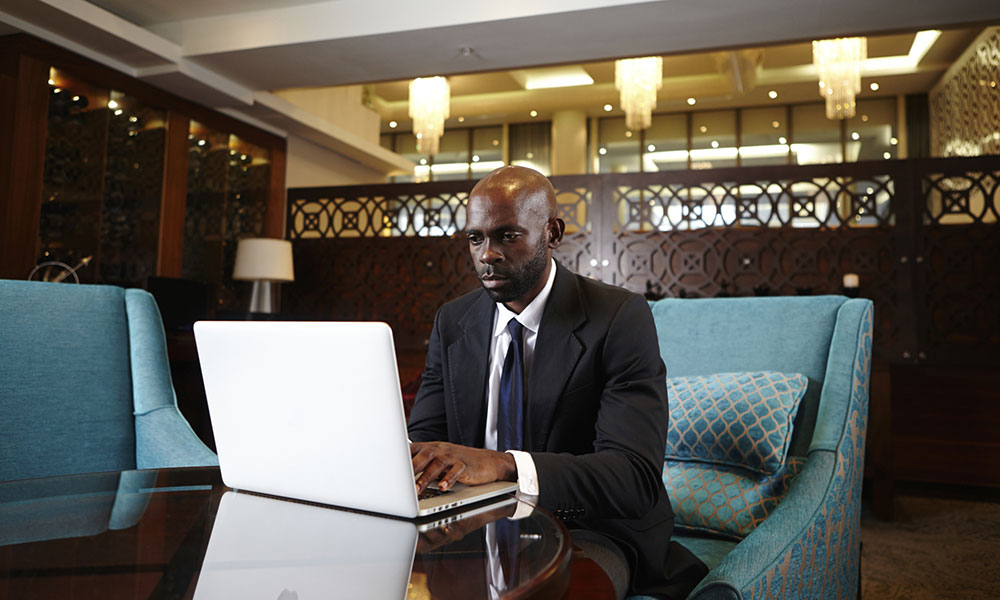
Hotel Industry Wants Clearer WiFi Signals From FCC
In the wake of a six-figure fine against Marriott for the use of signal-blocking devices, the FCC is considering a petition from an association that includes the hotel chain. The comment period, which ended last week, drew largely critical reactions from the tech sector.
In the wake of a six-figure fine against Marriott for the use of signal-blocking devices, the FCC is considering a petition from the hospitality industry to allow hotels to limit third-party WiFi signals to ensure network security. The comment period thus far has drawn largely critical reactions from the tech sector.
Is it ever OK for a hotel to block guests’ internet access via networks other than its own?
In a petition [PDF] to the Federal Communications Commission, Marriott International and others in the hospitality industry are making the case that some limitations on WiFi access at hotels should be permitted.
But during an ongoing comment period, other organizations, particularly in the tech sector, have reacted critically to industry’s argument.
The American Hospitality & Lodging Association joined Marriott in filing the petition last August, but the question gained new urgency in October when Marriott was hit by a $600,000 FCC fine for using wireless-blocking devices at its Gaylord Opryland facility in Nashville, Tennessee.
The agency found that Marriott had violated Section 333 of the Communications Act of 1934, which prohibits the use of devices that “willfully or maliciously interfere with or cause interference to any radio communications.”
The petition asks the FCC to, essentially, allow a limited amount of interference in the interest of network security.
“As WiFi becomes increasingly popular for connecting to the internet, it is imperative that the commission clarify the rules of the road for WiFi network operators,” the petition states. “WiFi network operators should be able to manage their networks in order to provide a secure and reliable WiFi service to guests on their premises. This is particularly true when WiFi access points are widely available from most electronics stores and when nearly every smartphone and tablet can function as a WiFi access point.
“Any access point can be used to launch an attack against an operator’s network or threaten its guests’ privacy (for example, by attempting to obtain guests’ credit card or other personal information),” the petition continues. “Likewise, multiple WiFi access points operating in a meeting room or on a convention floor of a hotel can adversely affect the performance of the hotel’s WiFi network. If a hotel is powerless to address such activities to ensure the security and reliability of its WiFi network on its premises, both the hotel and its guests would suffer.”
A better way?
Public commenters—among them Google, Microsoft, and CTIA: The Wireless Association—said there are better ways to manage networks than through the jamming of signals, and that disabling third-party networks could stifle innovation by limiting wireless access.
“To the extent WiFi operators have a legitimate need to protect their networks, they have a variety of other tools available to them that do not involve unlawfully disabling third-party access points,” CTIA said in its comment.
On the other hand, Cisco argued that the FCC should allow enterprises to safeguard their WiFi networks, but it did not support Marriott’s suggestion that the FCC begin formal rulemaking on the question. Cisco urged the agency to “issue a policy statement recommending best practices for balancing the commission’s goals for WiFi with the needs of government agencies, educational institutions, and other enterprises to maintain security and [manage] Wi-Fi use for other legitimate purposes.”
For its part, Marriott claims that its intent for the FCC petition has been misinterpreted. In a press release last week, the company claimed that it is simply “seeking clarity from the FCC regarding what lawful measures a network operator can take to prevent such attacks from occurring” in meeting and conference spaces.
“To set the record straight, it has never been nor will it ever be Marriott’s policy to limit our guests’ ability to access the internet by all available means, including through the use of personal MiFi and/or WiFi devices,” the company said. “As a matter of fact, we invite and encourage our guests to use these internet connectivity devices in our hotels.”
Correction: An earlier version of this article stated that the comment period for the petition, proceeding RM-11737, had ended. In fact, it remains ongoing. We regret the error.
(iStock/Thinkstock)






Comments